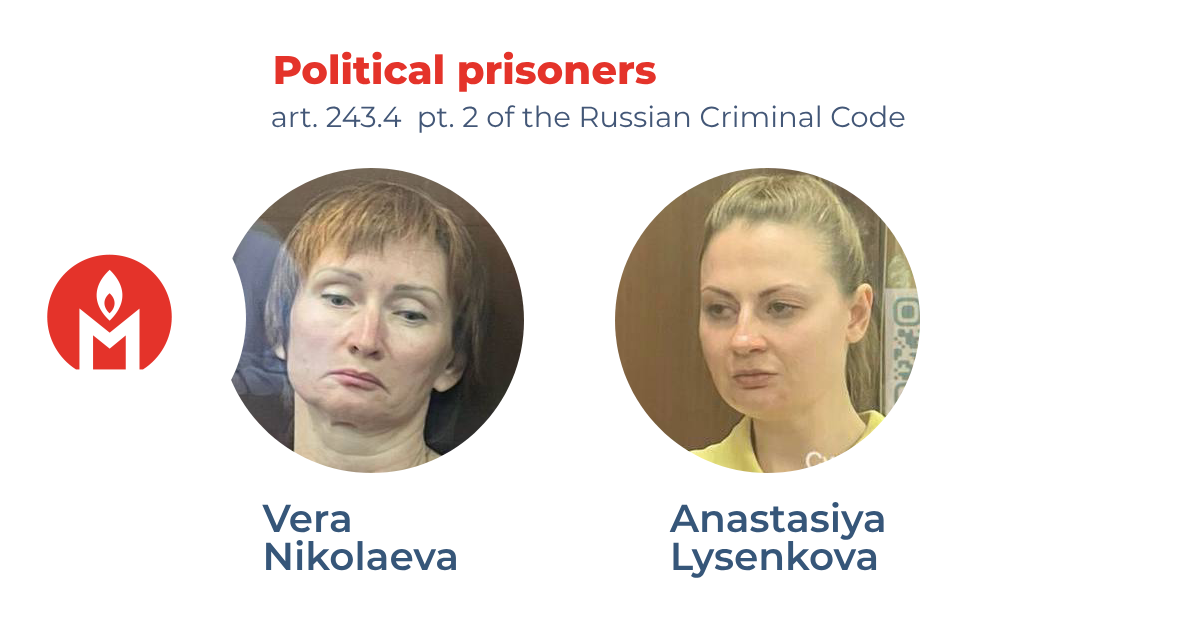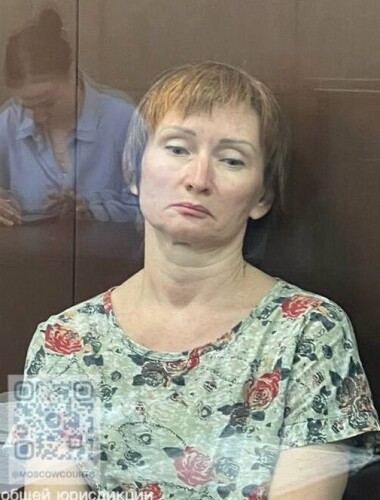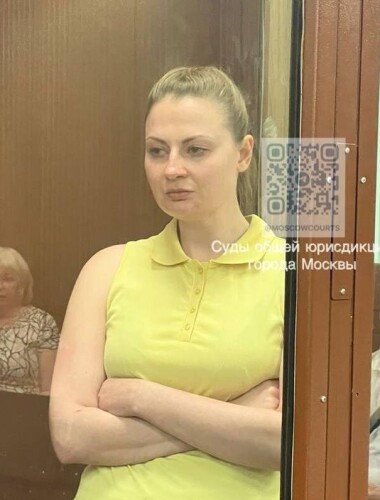Vera Nikolaeva and Anastasiya Lysenkova are political prisoners
Two nurses who wrote ‘GUR’ on the Zhukov monument in Moscow have been sentenced to one year of compulsory work in custody
The ‘Political Prisoners. Memorial’ human rights project, in accordance with international standards, considers Vera Nikolaeva and Anastasiya Lysenkova political prisoners. Nikolaeva and Lysenkova have been convicted of damaging a war memorial by writing on the pedestal of the Zhukov monument, which they did on the instructions of telephone scammers. The sentence they received is disproportionate to their actions and was in violation of their right to a fair trial. We demand their immediate release and that all criminal charges against them be dropped.

What were the charges against Nikolaeva and Lysenkova?
On the evening of 3 June 2024, 28-year-old Anastasiya Lysenkova approached the Marshal Georgy Zhukov monument on Manezhnaya Square in Moscow and spray-painted ‘GUR’ on its pedestal (the abbreviation for the Main Directorate of Intelligence of the Ministry of Defence of Ukraine). Her actions were filmed on a phone by 55-year-old Vera Nikolaeva. The women were arrested, and the paint was quickly removed. Soon afterwards, the video recorded by Nikolaeva began circulating online.
It later turned out that the two women — nurses from different towns in the Moscow Oblast — had never met before and had both fallen victim to telephone scammers who had directed their actions. A criminal case was opened against the two women on a charge of ‘damaging monuments to those who had defended the fatherland during the Second World War as part of a group acting by prior conspiracy’ (Article 243.4, Part 2, of the Russian Criminal Code). Initially, the women were remanded in custody, but three weeks later they were placed under house arrest. They admitted their guilt and expressed remorse.
On 26 August 2024, Vera Nikolaeva and Anastasiya Lysenkova were both sentenced to one year of compulsory work in custody.
Why do we consider Nikolaeva and Lysenkova political prisoners?
The criminal charge used to convict the women penalises the destruction of, or damage to, graves or memorials associated with the heroes of the Second World War done ‘with the aim of harming the historical and cultural significance of such objects.’
We consider this article of the Russian Criminal Code unnecessary since it duplicates existing laws banning vandalism and desecration of burial sites. Moreover, it imposes disproportionately harsh penalties for acts that pose no real threat to society.
The inscription made by the women on the memorial was swiftly and easily removed by street cleaners, in other words the actions of Nikolaeva and Lysenkova had no serious consequences. Furthermore, they reimbursed the cost of the cleaning. The memorial itself was not damaged, which means they should not have been charged under this article at all.
It is also clear that Nikolaeva and Lysenkova had no intention of undermining the historical and cultural significance of the memorial. They were victims of telephone scammers who had already extorted large sums of money from them. Instead of receiving the protection of the state, the women were subject to criminal prosecution and were imprisoned.
A detailed description of the case of Vera Nikolaeva and Anastasiya Lysenkova and of our position is available on our website.
Recognition of an individual as a political prisoner does not imply the ‘Political Prisoners. Memorial’ human rights project agrees with, or approves, their views, statements, or actions.
How can you help?
You can donate to help all political prisoners in Russia on our website.


